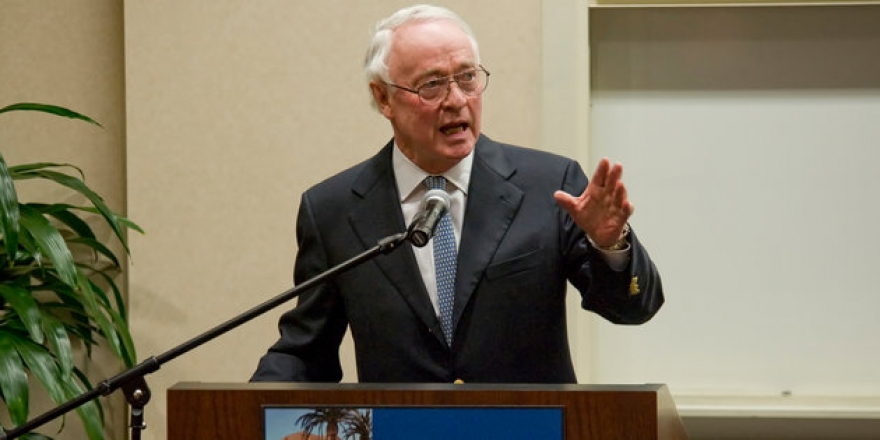Annual James Q. Wilson Conference Examines "Character and the Moral Sense"
Pepperdine Magazine is the feature magazine for Pepperdine University and its growing community of alumni, students, faculty, staff, and friends.
The current debate about the role of the humanities, as well as the sometimes forgotten
boundaries and limitations of what can finally be claimed by social science, provided
a robust environment in which to revisit the ideals of former School of Public Policy
professor James Q. Wilson at the annual conference honoring his legacy.
"Character and the Moral Sense: James Q. Wilson and the Future of Public Policy" took
place February 28 to March 1 at the Drescher Graduate Campus and focused on Wilson's
historic book, The Moral Sense, emphasizing the rediscovery of character as valid
concerns of policy education in democracy.
“Among the 140 scholars who attended the conference—from Harvard, Yale, Princeton,
Johns Hopkins, Berkeley and elsewhere, as well as from a half dozen of Pepperdine’s
sister Christian universities—were some of James Q. Wilson’s closest associates, as
well as many of his students who now populate the faculties of many of the most highly
respected programs in the nation," says School of Public Policy dean James Wilburn.
"While we staged the conference to honor the legacy of professor Wilson as one of
our founders, it also permitted us to be a major part of the conversation now under
way about the larger future of public policy programs in general, and insights they
can discover from a university nourished by Pepperdine’s unique mission.”
Given his storied and complete allegiance to "the data," Wilson had the courage to
explore doggedly the most important questions related to human character, the moral
sense, and this nation's continuing experiment in governance that is unarguably exceptional.
Although absent from the formal curricula of many public policy and public administration
programs, the unspoken and murky assumptions embedded in this search for a basic understanding
of human nature demand to be acknowledged and explored with skill and integrity, and
to instruct discussions of curricular reform.
